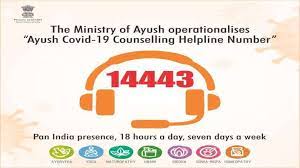Melbourne, Australia – Menstruation, a natural part of life for half of the global population, remains poorly understood, particularly when it comes to severe period pain in young people. A new study by the Murdoch Children’s Research Institute (MCRI), published in Women’s Health, sheds light on the significant impact of menstruation on adolescents and the persistent stigma surrounding the issue.
The groundbreaking study, titled “Missing and Dismissing the Impact of Periods: Outcomes of Focus Groups of Teens with Period Concerns”, is the first of its kind to employ a unique co-design model. Researchers interviewed adolescents aged 12–18 and their parents or caregivers separately, offering critical insights into the challenges faced by young people dealing with severe period pain.
Key Findings
The study revealed widespread frustration and distress among teens and their caregivers:
- Shame and Stigma: Many young women reported feeling ashamed and stigmatized for the intensity of their period pain, often leading to silence and a lack of support.
- Inadequate Medical Support: Parents and caregivers expressed concern about general practitioners (GPs) being inexperienced or hesitant to provide appropriate, strong pain relief for adolescents who need it.
- Insufficient School-Based Education: Participants criticized school-based reproductive education as universally inadequate, leaving teens ill-prepared to manage their menstrual health.
- Education for All: Young people emphasized the need for greater menstrual education among male classmates, teachers, and even parents to reduce dismissive attitudes and stigmatization.
The Role of Social Support
The findings reinforced previous research highlighting the importance of social support in managing the physical symptoms of severe period pain. Adequate support from parents, caregivers, peers, and medical professionals can make a significant difference in how young people cope with menstruation.
Lead researcher Courtney Bree Munro from MCRI stressed the urgent need for systemic change. “Our study demonstrates how stigma and dismissive attitudes from schools, medical professionals, and even families exacerbate the challenges of severe period pain. We need better education, increased empathy, and improved medical care for young people experiencing these issues,” she said.
A Call to Action
The study calls for targeted interventions to address the barriers identified. Recommendations include:
- Enhanced training for GPs to recognize and appropriately treat severe period pain in adolescents.
- Comprehensive menstrual education programs in schools, tailored for all genders, to foster understanding and reduce stigma.
- Greater public awareness campaigns to challenge dismissive attitudes and normalize discussions around menstruation.
Parents and young people alike hope these steps will lead to better outcomes for teens struggling with menstrual health issues.
More Information
The study, Missing and Dismissing the Impact of Periods: Outcomes of Focus Groups of Teens with Period Concerns, is published in Women’s Health. DOI: 10.1177/17455057241303003.












